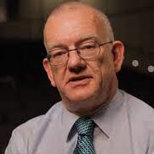Leonard Liggio, R.I.P.
SUGGESTED



From his early days as a student activist for Senator Robert Taft at Georgetown University in 1948 Leonard was one of the central figures of the post World War II movement for a free society and limited government. The list of organisations that he was associated with, often as a founder or senior figure, is simply a list of all of the significant classical liberal think tanks and organisations of the last fifty years, including the Volker Fund, the Institute for Humane Studies, the Atlas Network, the Philadelphia Society, Universidad Francisco Marroquin, the Intercollegiate Studies Institute, the Liberty Fund, the Cato Institute, the Competitive Enterprise Institute, the Minaret of Freedom Institute, and the Acton Institute. There were many others.
Everyone who met Leonard will have their particular memories of him – one common one is of his seeming ability to listen to a lecture while sleeping soundly through it before waking up and making appropriate and thoughtful comments about the content. His extraordinary memory and encyclopaedic knowledge of history and the history of liberalism in particular was also something everyone noticed. What everyone who knew him remembers however was his kindness, his enthusiasm for helping younger people in particular and his complete lack of personal competitiveness and bearing of grudges.
He had three roles or parts to play in the movement for liberty, which defined his legacy. The first was his role as a scholar. He did not write as much as others but the various essays he did write were all influential and on topics that otherwise would have remained lost and obscure for most libertarians, particularly the history of liberal ideas outside the Anglo-Saxon world, and the importance of ideas that while once central to liberal thinking had been displaced or forgotten in the mid-twentieth century.
His second role, already mentioned, was that of a mentor for younger scholars and activists. Some idea of how important he was in this regard can be gained by looking at the contributors to the collection of short pieces put together by John and Christine Blundell, Alejandro Chafuen and Walter Grinder to mark his 65th birthday Born on the 5th of July. The list is the closest one could get to a list of leading classical liberal thinkers, writers and activists from that time. A more recent version would include another entire generation of people who knew him and gained from his mentoring.
His third, very important role came from what was for him the most important part of his life, his devout Catholicism. Throughout his life his commitment to liberty was both inspired by and shaped by his faith and its values. He sought always to defend and advocate a connection between the two. One of his main concerns was to defend this position against those who sought to make a connection between Catholic thinking and socialist statism and (even more importantly) also those who articulated the common view among Anglo-Saxon liberals of a connection between Catholicism and authoritarianism of all kinds. He directly inspired the rediscovery of the roots of much later liberal thinking in late Scholastic thought in Spain and elsewhere and encouraged younger scholars to explore the connections between classical Catholic thought (especially Thomism) and the ideal of a free society.
At the close of his life Leonard left a large and rich legacy, of institutions he had helped to build and strengthen, and of persons whose lives he had touched and whose thinking and careers he had nurtured. His intellectual legacy, both directly and through the work of people he directly inspired and influenced is perhaps the one that will live longest. There are several elements of classical liberal thinking that have only survived or attracted renewed interest because of his efforts. The most important are the class theory and analysis of classical liberalism, the critique of expansionist and interventionist foreign policy and reaffirmation of traditional liberal ideas about peace and international order, the classical liberal approach to historiography and the study of history, and rich and growing tradition of Christian and particularly Roman Catholic liberalism. As with all intellectual builders he leaves a work unfinished in all of these areas and with much more to do, but his own work, his character and his life leave a model to all of us.




